
A remastered edition of percussionist Masahiko Togashi's 1979 trio album with trumpeter Don Cherry and bassist Charlie Haden, bridging free jazz with Eastern influences in both dynamic and introspective playing, released with the original artwork plus an 8-page booklet of new photographs, liner notes in English & French and a biography of Togashi by Paul Bowler.
Out of Stock
Quantity in Basket: None
Log In to use our Wish List
Shipping Weight: 5.00 units
Sample The Album:
Masahiko Togashi-percussion
Don Cherry-trumpet, cornet, flute, percussion
Charlie Haden-bass
Click an artist name above to see in-stock items for that artist.
Includes eight-page color booklet with liner notes by Jacques Denis/Martin Meissonnier and Paul Bowler plus unissued photos by Philippe Gras.
UPC: 3700604742005
Label: WeWantSounds
Catalog ID: WWSCD 067CD
Squidco Product Code: 32544
Format: CD
Condition: New
Released: 2023
Country: UK
Packaging: Jewel Case
Recorded at Studio Ramses, in Paris, France, on July 12th and 13th, 1979, by Jean-Louis Rizet. Originally released in 1979 as a vinyl LP on the Japanese Paddle Wheel label with catalog code GP 3206.
"A special edition of the legendary 1979 Masahiko Togashi album Song of Soil, recorded in Paris with Don Cherry and Charlie Haden and released on Japanese label Paddle Wheel. Supervised by Parisian producer Martin Meissonnier -- then Don Cherry's right-hand man -- Song of Soil reaches heights of spirituality mixing Eastern influences with jazz and deep ambient soundscapes.
The album is reissued here with its original artwork and remastered by King Records in Japan. Masahiko Togashi's cult classic, Song of Soil was recorded just a few months after the Codona album release but unlike the landmark ECM album, Song of Soil was only released in Japan at the time.
Thanks to Japanese pianist Takashi Kako, who was living in Paris at the time, a session had been set up with Don Cherry and Charlie Haden thanks to Martin Meissonnier, a young journalist and radio producer, who was starting to make an impression on the Paris music scene. Paris at the time was a buzzing city and one of the most active epicenters of jazz creativity. Masahiko Togashi was, at the time, one of Japan's most celebrated jazz musicians. He was a key exponent of the Japanese free jazz movement at the turn of the '60s.
Despite an accident that had left him paralyzed from waist down, Togashi became more active than ever thanks to a special drumkit that enabled him to play like before. He came to Paris to record Song of Soil with the two American musicians who were touring Europe with their Old and New Dreams quartet (they'd played a concert promoted by Meissonnier at the Palais des Glaces on the July 31st). Always on the lookout for new inspiring adventures, Cherry agreed to do the session with Togashi and the musicians headed to the Ramses studio to record the album with Haden as the bassist.
Comprised of six Togashi originals, Song of Soil is a superb blend of global improvisational interaction featuring Togashi's deep abstract drumming, Don Cherry's [imaginative] trumpet playing, and Charlie Haden's expansive basslines. Also present during the session was Don Cherry's friend, photographer Philippe Gras who'd shot the cult legendary short film Don Cherry in 1968. Gras shot the session for the album release and artwork.
For Meissonnier, it was the beginning of a meteoric rise that would see him shape the global sound of the '80s with Fela Kuti, King Sunny Ade, and Rai musicians. A key album in Don Cherry's discography as well as an essential Japanese jazz album, Song of Soil is a unique meeting of the minds. "-WeWantSounds
Includes eight-page color booklet with liner notes by Jacques Denis/Martin Meissonnier and Paul Bowler plus unissued photos by Philippe Gras.
Artist Biographies
• Show Bio for Masahiko Togashi "Masahiko Togashi (March 22, 1940, Tokyo - August 22, 2007, Kanagawa) was a Japanese jazz percussionist and composer. Togashi grew up in a musical household; his father was a double-bassist in a swing jazz ensemble, and Togashi learned violin and drums, playing the latter in his father's band. He worked with Sadao Watanabe, Toshiko Akiyoshi, and Tony Scott in the 1950s, then founded the ensemble Jazz Academy in 1961 with Hideto Kanai, Masabumi Kikuchi, and Masayuki Takayanagi. He was an early free jazz leader in Japan, playing in this idiom with Yosuke Yamashita and performing with American musicians such as Ornette Coleman, Blue Mitchell, Lee Morgan, and Sonny Rollins on Japanese tours. Togashi lost the use of his legs in an accident in 1969, and designed a new kit that would allow him to continue playing. Later associations included performing or recording with Paul Bley, Don Cherry, Jack DeJohnette, Charlie Haden, Steve Lacy, Gary Peacock, Masahiko Sato, and Yuji Takahashi." ^ Hide Bio for Masahiko Togashi • Show Bio for Don Cherry "Imagination and a passion for exploration made Don Cherry one of the most influential jazz musicians of the late 20th century. A founding member of Ornette Coleman's groundbreaking quartet of the late '50s, Cherry continued to expand his musical vocabulary until his death in 1995. In addition to performing and recording with his own bands, Cherry worked with such top-ranked jazz musicians as Steve Lacy, Sonny Rollins, Archie Shepp, Albert Ayler, John Coltrane, and Gato Barbieri. Cherry's most prolific period came in the late '70s and early '80s when he joined Nana Vasconcelos and Collin Walcott in the worldbeat group Codona, and with former bandmates Charlie Haden and Ed Blackwell, and saxophonist Dewey Redman in the Coleman-inspired group Old and New Dreams. Cherry later worked with Vasconcelos and saxophonist Carlos Ward in the short-lived group Nu. The Avant-Garde Born in Oklahoma City in 1936, he first attained prominence with Coleman, with whom he began playing around 1957. At that time Cherry's instrument of choice was a pocket trumpet (or cornet) -- a miniature version of the full-sized model. The smaller instrument -- in Cherry's hands, at least -- got a smaller, slightly more nasal sound than is typical of the larger horn. Though he would play a regular cornet off and on throughout his career, Cherry remained most closely identified with the pocket instrument. Cherry stayed with Coleman through the early '60s, playing on the first seven (and most influential) of the saxophonist's albums. In 1960, he recorded The Avant-Garde with John Coltrane. After leaving Coleman's band, Cherry played with Steve Lacy, Sonny Rollins, Archie Shepp, and Albert Ayler. In 1963-1964, Cherry co-led the New York Contemporary Five with Shepp and John Tchicai. With Gato Barbieri, Cherry led a band in Europe from 1964-1966, recording two of his most highly regarded albums, Complete Communion and Symphony for Improvisers. Cherry began the '70s by teaching at Dartmouth College in 1970, and recorded with the Jazz Composer's Orchestra in 1973. He lived in Sweden for four years, and used the country as a base for his travels around Europe and the Middle East. Cherry became increasingly interested in other, mostly non-Western styles of music. In the late '70s and early '80s, he performed and recorded with Codona, a cooperative group with percussionist Nana Vasconcelos and multi-instrumentalist Collin Walcott. Codona's sound was a pastiche of African, Asian, and other indigenous musics. Art Deco Concurrently, Cherry joined with ex-Coleman associates Charlie Haden, Ed Blackwell, and Dewey Redman to form Old and New Dreams, a band dedicated to playing the compositions of their former employer. After the dissolution of Codona, Cherry formed Nu with Vasconcelos and saxophonist Carlos Ward. In 1988, he made Art Deco, a more traditional album of acoustic jazz, with Haden, Billy Higgins, and saxophonist James Clay. Multikulti Until his death in 1995, Cherry continued to combine disparate musical genres; his interest in world music never abated. Cherry learned to play and compose for wood flutes, tambura, gamelan, and various other non-Western instruments. Elements of these musics inevitably found their way into his later compositions and performances, as on 1990's Multi Kulti, a characteristic celebration of musical diversity. As a live performer, Cherry was notoriously uneven. It was not unheard of for him to arrive very late for gigs, and his technique -- never great to begin with -- showed on occasion a considerable, perhaps inexcusable, decline. In his last years, especially, Cherry seemed less self-possessed as a musician. Yet his musical legacy is one of such influence that his personal failings fade in relative significance." ^ Hide Bio for Don Cherry • Show Bio for Charlie Haden "Charles Edward Haden (August 6, 1937 - July 11, 2014) was an American jazz double bass player, bandleader, composer and educator whose career spanned more than 50 years. In the late 1950s, he was an original member of the ground-breaking Ornette Coleman Quartet. Haden revolutionized the harmonic concept of bass playing in jazz. German musicologist Joachim-Ernst Berendt wrote that Haden's "ability to create serendipitous harmonies by improvising melodic responses to Coleman's free-form solos (rather than sticking to predetermined harmonies) was both radical and mesmerizing. His virtuosity lies (...) in an incredible ability to make the double bass 'sound out'. Haden cultivated the instrument's gravity as no one else in jazz. He is a master of simplicity which is one of the most difficult things to achieve." Haden played a vital role in this revolutionary new approach, evolving a way of playing that sometimes complemented the soloist and sometimes moved independently. In this respect, as did his predecessor bassists Jimmy Blanton and Charles Mingus, Haden helped liberate the bassist from a strictly accompanying role to becoming a more direct participant in group improvisation. In 1969, he formed his first band, the Liberation Music Orchestra, featuring arrangements by pianist Carla Bley. In the late 1960s, he became a member of pianist Keith Jarrett's trio, quartet and quintet. In the 1980s, he formed his band, Quartet West. Haden also often recorded and performed in a duo setting, with musicians including guitarist Pat Metheny and pianist Hank Jones." ^ Hide Bio for Charlie Haden
11/20/2024
Have a better biography or biography source? Please Contact Us so that we can update this biography.
11/20/2024
Have a better biography or biography source? Please Contact Us so that we can update this biography.
11/20/2024
Have a better biography or biography source? Please Contact Us so that we can update this biography.
Track Listing:
1. June 6:12
2. Words Of Wind - Part I 2:53
3. Oasis 10:24
4. Song Of Soil 4:48
5. Words Of Wind - Part II 5:32
6. Rain 8:07
Improvised Music
Jazz
Free Improvisation
NY Downtown & Metropolitan Jazz/Improv
Asian Improvisation & Jazz
Trio Recordings
New in Improvised Music
Recent Releases and Best Sellers
Staff Picks & Recommended Items
Search for other titles on the label:
WeWantSounds.


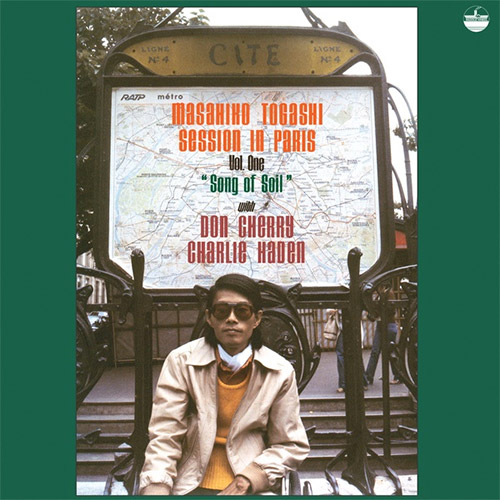
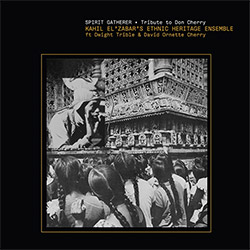
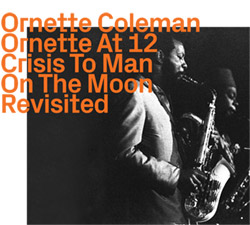




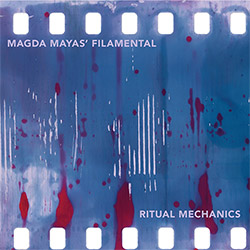




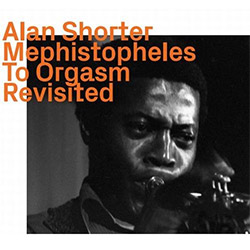
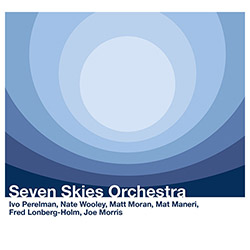


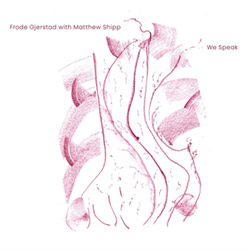
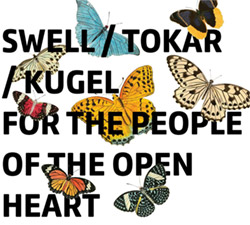
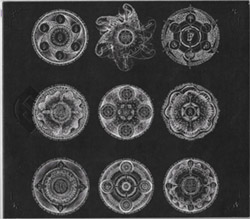
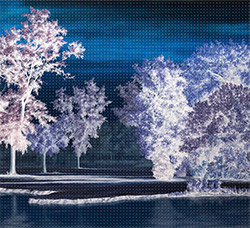


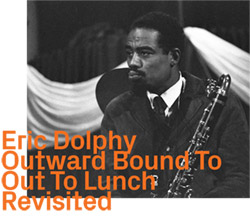
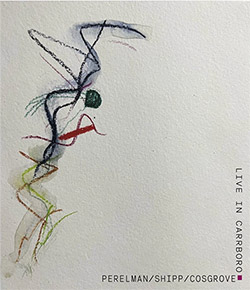

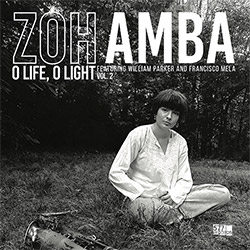



![Guy, Barry / Ken Vandermark: Occasional Poems [2 CDs]](https://www.teuthida.com/productImages/misc4/34849.jpg)
![Novoa / Carter / Mela Trio: Vol.1 [VINYL]](https://www.teuthida.com/productImages/misc4/35236.jpg)


![Elephant9 : Mythical River [VINYL]](https://www.teuthida.com/productImages/misc4/34624.jpg)
![Evans, Peter (Evans / Eldh / Black): Extra [VINYL]](https://www.teuthida.com/productImages/misc4/35279.jpg)

![McPhee, Joe: Straight Up, Without Wings [BOOK]](https://www.teuthida.com/productImages/misc4/35454.jpg)
![Jeck, Philip: rpm [2 CDs]](https://www.teuthida.com/productImages/misc4/35455.jpg)













![Barker / Parker / Irabagon: Bakunawa [VINYL]](https://www.teuthida.com/productImages/misc4/35533.jpg)
![Blaser, Samuel / Marc Ducret / Peter Bruun: Dark Was The Night, Cold Was The Ground [VINYL 10-inch]](https://www.teuthida.com/productImages/misc4/35492.jpg)








![Warren, Kenny (Warren / Hoffman / Ellman): Sweet World [VINYL]](https://www.teuthida.com/productImages/misc4/35451.jpg)




![Blake, Ran / Dave Knife Fabris: Live Amsterdam 2006, First Visit [CD + POSTCARDS]](https://www.teuthida.com/productImages/misc4/35275.jpg)













![DNS: Taking Big Bites Of The Khandas Three Cafes Deep [2 CDs]](https://www.teuthida.com/productImages/misc4/35334.jpg)




![Cleaver, Gerald: The Process [VINYL]](https://www.teuthida.com/productImages/misc4/34966.jpg)




![Alva Noto: HYbr:ID II [VINYL 2 LPs]](https://www.teuthida.com/productImages/misc4/35201.jpg)

![Baron, Derek / Luke Martin: Distinct and Concealed [CASSETTE + DOWNLOAD]](https://www.teuthida.com/productImages/misc4/35079.jpg)

![Lyle, Erica Dawn : Colonial Motels [CASSETTE + DOWNLOAD]](https://www.teuthida.com/productImages/misc4/35080.jpg)









![Sanna, Claudio: Compositori Sardi Contemporanei II [2 CDs]](https://www.teuthida.com/productImages/misc4/35317.jpg)






![Zurria, Manuel: Fame di Vento [3 CDs]](https://www.teuthida.com/productImages/misc4/35167.jpg)

![Granberg, Magnus / Nattens Inbrott / Skogen: Holde Traume, Kehret Wieder! [2 CDs]](https://www.teuthida.com/productImages/misc4/35038.jpg)
![Frey, Jurg: Outermost Melodie [2 CDs]](https://www.teuthida.com/productImages/misc4/35039.jpg)

![Pavone, Jessica: Reverse Bloom [VINYL]](https://www.teuthida.com/productImages/misc4/34895.jpg)




![Modney (Modney / Wooley / Gentile / Roberts / Pluta / Symthe / ...): Ascending Primes [2 CDs]](https://www.teuthida.com/productImages/misc4/34852.jpg)









![Elephant9 with Terje Rypdal: Catching Fire [VINYL 2 LPs]](https://www.teuthida.com/productImages/misc4/35355.jpg)
![Deerlady (Obomsawin, Mali / Magdalena Abrego): Greatest Hits [VINYL]](https://www.teuthida.com/productImages/misc4/34876.jpg)




![Haino, Keiji: Black Blues [2 CDs]](https://www.teuthida.com/productImages/misc4/35109.jpg)



![Surplus 1980: Illusion of Consistency [CD]](https://www.teuthida.com/productImages/misc4/35069.jpg)
![Staiano, Moe: Away Towards the Light [VINYL + DOWNLOAD]](https://www.teuthida.com/productImages/misc4/35037.jpg)



![Caveira (Gomes / Sousa / Abras / Ferrandini): Ficar Vivo [VINYL]](https://www.teuthida.com/productImages/misc4/34643.jpg)
![Gregg, J. J. / David Van Auken: Lunar Prairie [CD w/ DOWNLOAD]](https://www.teuthida.com/productImages/misc4/34611.jpg)

![Coultrain: Mundus [VINYL]](https://www.teuthida.com/productImages/misc4/32439.jpg)
![Mattin: Songbook #6 [VINYL]](https://www.teuthida.com/productImages/misc4/27317.jpg)
![Punkappella: Wake Up [7-inch VINYL]](https://www.teuthida.com/productImages/misc4/17519.jpg)
![Residents, The: WARNING: UNiNC.: Live And Experimental Recordings 1971-1972 [VINYL 2 LPs]](https://www.teuthida.com/productImages/misc4/31521.jpg)
![Coultrain: Phantasmagoria [VINYL]](https://www.teuthida.com/productImages/misc4/30142.jpg)
![Lennon, Sean Ono: Asterisms [VINYL]](https://www.teuthida.com/productImages/misc4/34517.jpg)

![Coley, Byron: Dating Tips for Touring Bands [VINYL]](https://www.teuthida.com/productImages/misc4/17906.jpg)

![Lost Kisses: My Life is Sad & Funny [DVD]](https://www.teuthida.com/productImages/misc4/lostKissesDVD.jpg)